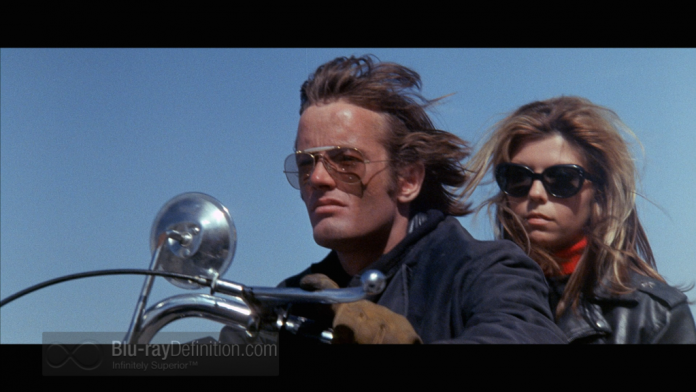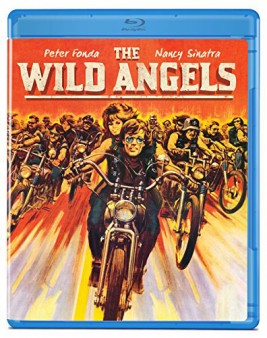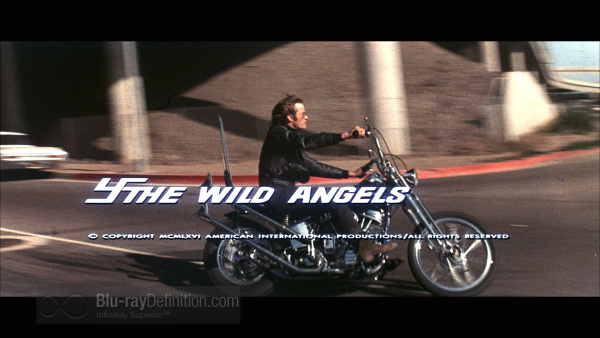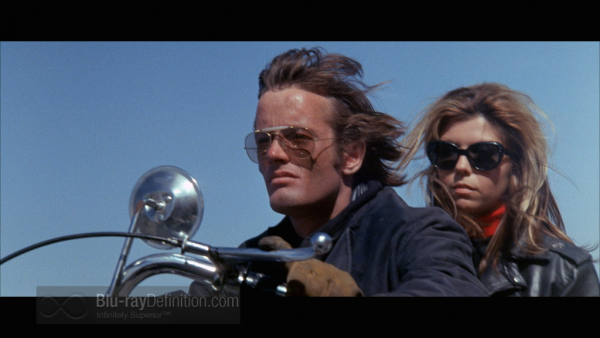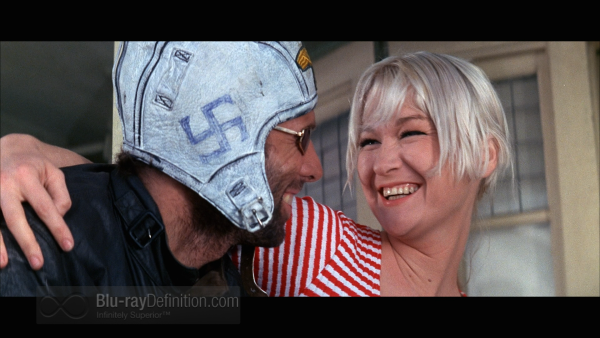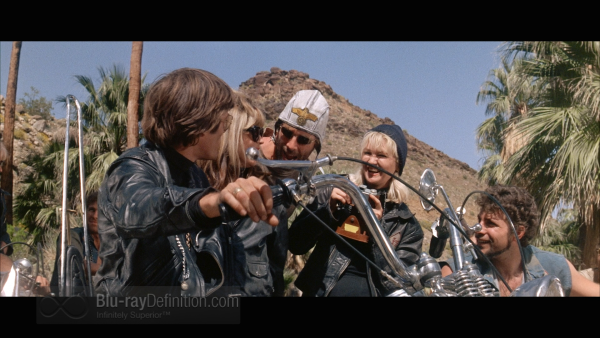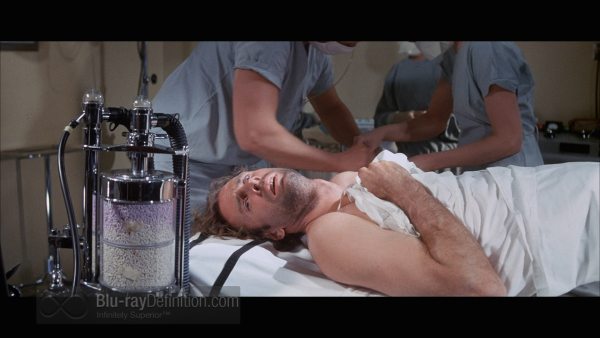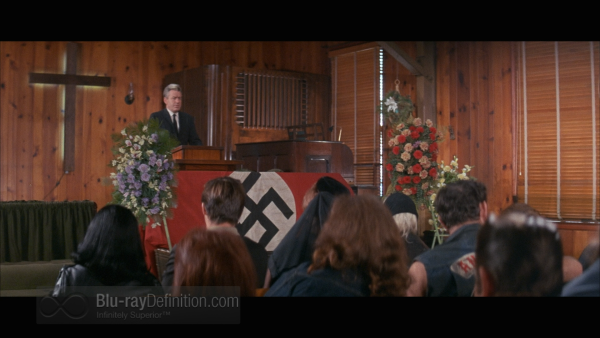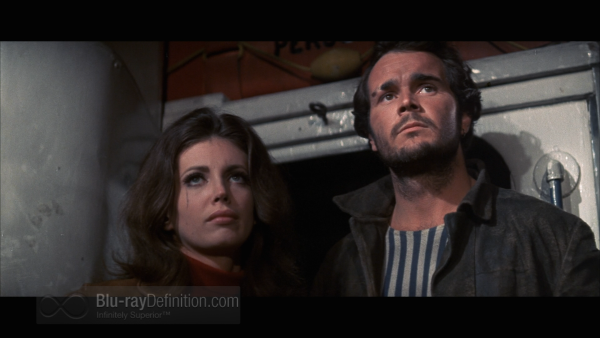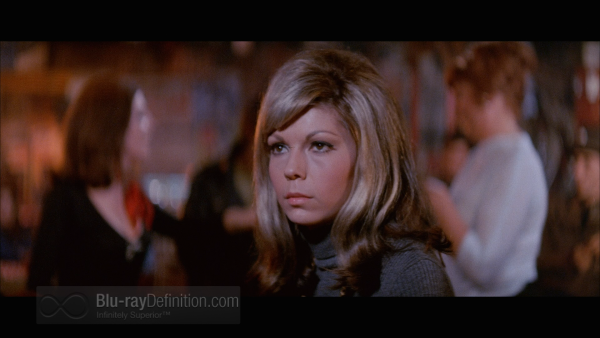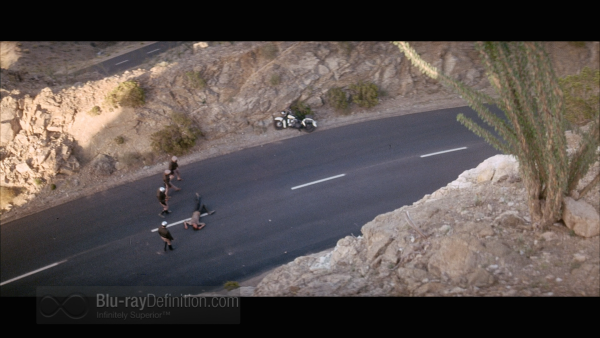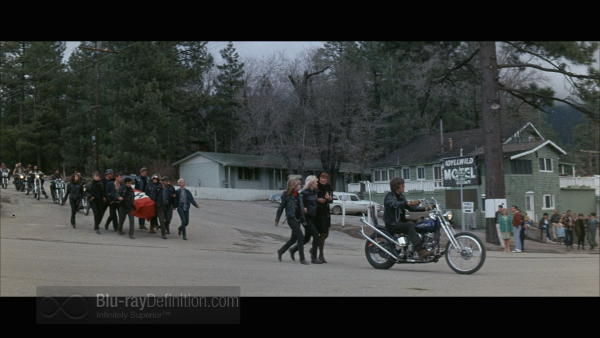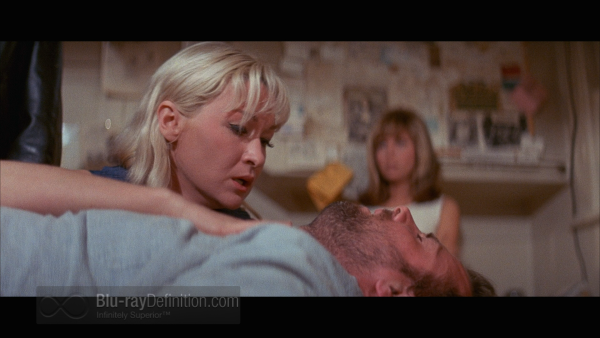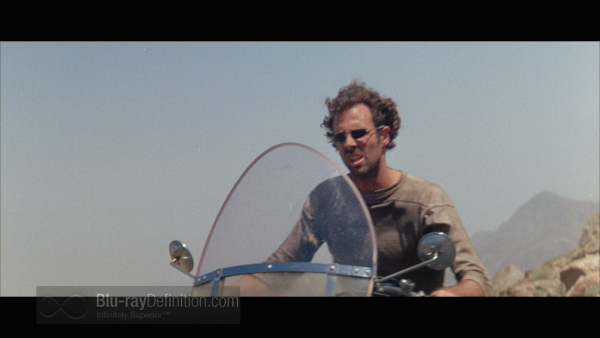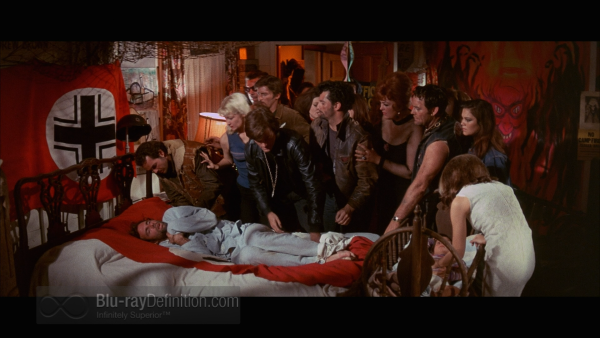– –
The Film
[Rating:2/5]
Counter-culture biker films started becoming the fodder for Hollywood films with Marlon Brando’s The Wild One in 1953. The 20th century counterpart to Wild West movies but with Harley-Davidson motorcycles replacing horses, such films celebrated those who defied social conventions and thumbed their respective noses at authority. Shot three years before Easy Rider, The Wild Angels gets its titular inspiration from the legendary California biker group, Hell’s Angels (some of whom appear in the film), and, not coincidentally puts Peter Fonda into the lead role. Son of Hollywood legend Henry Fonda, Peter was a relative newcomer to the cinematic scene, appearing in a series of B-films.
Beginning innocently enough with a small boy driving his bike nearly head one into Fonda’s cycle on a sidewalk, before the titles appear with a swastika logo, we get images that eerily presage Easy Rider. Fonda plays “Heavenly Blues,” an antisocial biker who gets his buddy Joe “Loser” Kearns (Bruce Dern) fired from his oil rig job. The good news is that Joe’s missing bike has been found and the Angels go out to reclaim it. Of course, the police are not pleased with their presence as they crank up their machines for an epic race to, you guessed it, Mecca, California.
The Angels catch up with their Mexican counterparts at a garage and, surprisingly, find parts of Loser’s bike, and beat the crap out of their rivals before making their getaway. In the melee, Loser steals a police cycle and gets wounded for his efforts.
Back at biker heaven, we get to see unbridled debauchery, fights, and eventually a police raid. Cut to Loser going to the hospital where he is treated for a gunshot wound incurred during his attempt to avoid arrest. The gang makes a plan to bust Loser out of the hospital to prevent him from going to prison. Blues’s woman Mike “Monkey” (Nancy Sinatra) works her way into the room, enabling her man to spring Loser out of his hospital bed.
Of course, Loser’s ultimate fate is not surprising and delivers a chilling message to the biker community. The faux and totally unconnected romance between Blues and Monkey Mike continues to percolate as the plot’s wheels continue to spin out of control toward a tawdry and gratuitously violent finale.
Roger Corman was a leading director in Hollywood’s B-movie industry during the ‘50s and ‘60s and this low-budget, quickly shot film is a fair representative of his work. Biker film fanatics will flock to this one to see Peter Fonda at work but as this genre goes, it is a bottom-of-the-barrel effort.
Video Quality
[Rating:3/5]
The print quality is extremely variable with some scenes showing decent detail, contrast and colors with others looking quite washed out and grainy.
Audio Quality
[Rating:3/5]
Dialogue, such as it is, after all this is an action rather than dialogue driven film, is adequately reproduced. The sound track features music of the era that sounds rather compressed and boxy.
Supplemental Materials
[Rating:0/5]
There are no extras.
The Definitive Word
Overall:
[Rating:2/5]
The motorcycle gang movie was a frozen-in-aspic cinematic genre that passed its sell by date many years ago. This stereotypical representation of a moment in time will likely have limited appeal to today’s audiences. The offensive use of Nazi symbols and ethnic slurs rules this one out for me and may do so for other viewers as well. At least Easy Rider dealt with war and other social issues of its era and had superb cinematography. As for The Wild Angels, the final score is redeeming moments few, unredeeming moments many.
Additional Screen Captures
[amazon-product]B00R5TAWQQ[/amazon-product]
[amazon-product]B00R5TAWQQ[/amazon-product]


